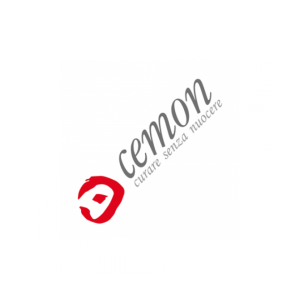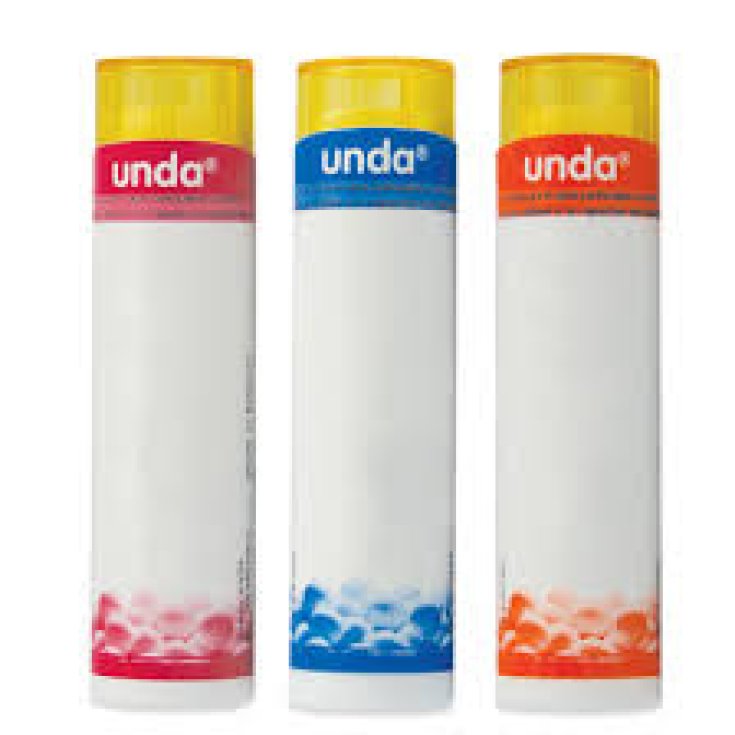UNDA Antimonium Tartaricum 15CH Globules Homeopathic Medicine

- Brand: CEMON Srl
- Product Code: 800636351
- EAN: 8013901055835
- Availability: In 10 - 14 Days
- Purchase 3 items for 7.35€ each
- Purchase 4 items for 7.20€ each
- Purchase 5 items for 7.05€ each
UNDA
Antimonium Tartaricum 15CH Globules
Homeopathic medicine
Antimonium tartaricum is a homeopathic remedy which has its main sphere of action on the respiratory system. It is useful for acute and chronic bronchitis, bronchopneumonia, pulmonary congestion, bronchiectasis (dilation of a bronchus that can be congenital or acquired following a disease such as chronic bronchitis). IT'S A GREAT REMEDY FOR ASTHMA. It acts on the pneumogastric nerve causing problems in the chest and abdomen (such as Antimonium crudum).
The subject Antimonium tartaricum when coughing shows a large collection of mucus in the bronchi; he is in a state of great weakness and prostration, he breathes with difficulty, the respiratory tract is cluttered with an excessively viscous mucus and his weakness is such that he is unable to expel it. Homeopaths refer to this weakness as "pulmonary paralysis".
The mucus is eliminated from the subject almost exclusively with vomiting. Abdominal problems are represented by nausea, vomiting, diarrhea, disgust for food, a milky-white tongue with red borders and clearly visible red papillae. The vomiting is due, as already mentioned, to the action of the antimony.
The remedy is suitable for hydrogenic subjects (who tend to retain liquids) with a phlegmatic constitution, sickly in appearance, whose face is pale and covered with cold sweat, whose lips are often cyanotic. The nose is sharp, the nostrils are dilated and throbbing, the eyes are circled. The subject is sleepy and trembling (he has tremors of the jaw, of the head, of the hands as in Parkinson's disease), he is irritable, restless, apprehensive, agitated, bewildered, does not want to be concerned about his business, does not want to be annoyed. Babies in need of the remedy love to be picked up, but cry if someone touches them.
The muscular weakness of Antimonium tartaricum affects all the muscles and manifests itself, as mentioned above, with the difficulty of expectoration and, in the most serious cases, with the difficulty in getting up or sitting down and lifting the head when one is supine. It is for this reason that the subject often refuses to drink despite having dry mouth and tongue, otherwise he drinks cold water or acidic drinks in small sips. The act of drinking, however, causes him to vomit. Often after vomiting, he lies exhausted on the bed.
Many symptoms worsen when the person gets hot or too covered (however the remedy does not have the same sensitivity to heat and sun as Antimonium crudum), in a heated room, in bed, with the change of weather in spring, at night. Also any lowering of temperature aggravates the subject as it causes a state of cooling and the exacerbation of rheumatic and muscular pains, especially if it is an elderly person. Movement also aggravates it as it increases the sensation of heat and sweating, as well as worsens its muscle weakness.
The general state improves with fresh air, in the open air, in a sitting or supine position, with the right lateral decubitus.
A particular feature of the Antimonium tartaricum subject is that he lies down with his head back.
Among the antidotes of Antimonium tartaricum we find: Asa fetida, China, Cocculus, Conium, for the pustules; Ipeca, Opium, Pulsatilla, Sepia, for poisoning symptoms (Opium in large quantities is the best antidote for poisoning).
USE OF THE REMEDY
Antimonium tartaricum is used in the following main cases, when the symptoms correspond and are associated with the characteristics of the remedy.
1) APP. RESPIRATORY:
• For all respiratory diseases when there is difficult breathing (dyspnoea) with rattle and cough, a sense of suffocation and considerable accumulation of mucus with difficulty in expectoration, typical of asthma. The mucus, excessively viscous, is mainly eliminated by vomiting. The nostrils are very dilated. The cough is suffocating, aggravated by the heat, by hot drinks, by the warmth of the bed, it gets worse in the supine position and at 4 in the morning. The remedy is widely used in situations of breathing difficulties due to seasonal allergies.
• In cases of pertussis in children. Babies cough mostly after getting angry and after crying; following the cough they sweat in the head, especially in the forehead and vomit mucus.
• In cases where as a result of cold-humid weather, autumn or spring rains, overcast weather, you get cold repeatedly and have frequent bouts of bronchitis. The onset of acute cooling is never violent. This state often corresponds to bronchitis in children.
• In cases where both adults and the elderly have long experienced, in every winter, a chest phlegm with stertorous breathing (ie with rattle, with snoring) that fills the whole chest and with difficulty in breathing.
• In the cases of elderly people with chronic bronchitis, able to walk (not infirm) but very weak, with swollen and painful joints, in which any lowering of the temperature causes chest discomfort and a worsening of their rheumatic problems.
2) APP. GASTROENTERIC: gastralgia with nausea, vomiting, disgust for food, liquid stools, cold sweat, prostration and sleepiness after vomiting. There is an aversion to milk, which causes vomiting, as well as a craving for acidic foods and drinks. Vomiting, due to coughing, is made up of white, thick and viscous mucus, but it can also have some streaks of blood due to the enormous effort made to vomit. The tongue has a milky-white patina with red edges and red visible papillae. Gastric symptoms are less pronounced than in Antimonium crudum and are always linked to thoracic symptoms.
3) SKIN: pustular, acneic, painful eruptions. The pustules (small bumps containing pus) fill with fluid and eventually rupture, thus forming scabs that leave a scar. These rashes are similar to smallpox pustules and to those that can appear after the administration of a vaccine. The remedy is used in both cases, smallpox and vaccine, especially since it also has an analogy with rachialgia (pain in the rachis, that is, of the spine), nausea, vomiting and diarrhea of smallpox. It is used in cases of acne.

